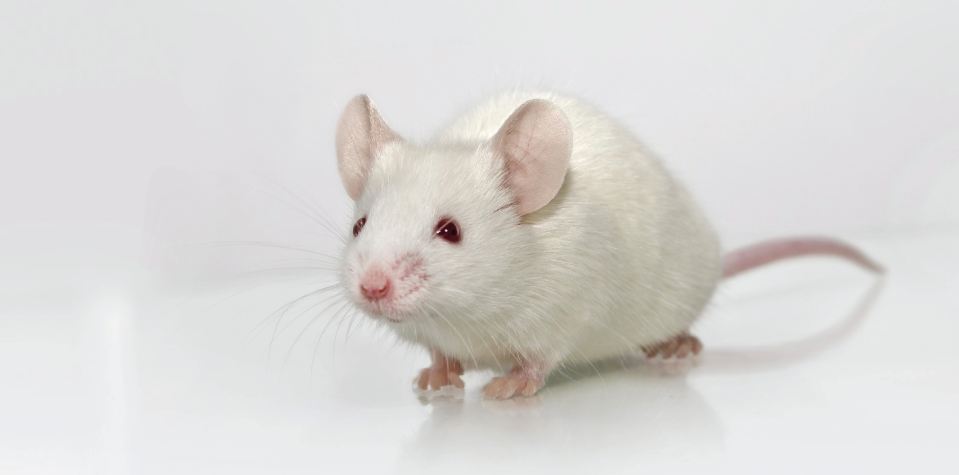| Model No. | Nomenclature | Genotype |
|---|---|---|
| 4169 | C57BL/6NTac-Fpr1tm1Gao N6 | Inquire for genotype |
Fpr1 Knockout

- Description
- Price & Licensing
- Overview
- Genetics
- Guides & Publications
- Applications & Therapeutic Areas
- Transit, Housing & Welfare
- Diet
Overview
Nomenclature: C57BL/6NTac-Fpr1tm1Gao N6
N-formylpeptides derive from bacterial and mitochondrial proteins, and bind to specific receptors on mammalian phagocytes. Since binding induces chemotaxis and activation of phagocytesin vitro, it has been postulated that N-formylpeptide receptor signaling in vivo may be important in antibacterial host defense, although direct proof has been lacking. Mice genetically deficient in formyl peptide receptor (FPR-/-) have no obvious developmental defects and do not develop spontaneous infection when derived in specific pathogen-free conditions. This suggests that, under these conditions, FPR is dispensable. However, when challenged with Listeria monocytogenes, FPR-/- mice have accelerated mortality and increased bacterial burden in liver and spleen early after infection, which suggests a role for FPR in host defense, specifically through regulation of innate immunity.
Origin
Drs. Ji-Liang Gao and Philip Murphy in the Laboratory of Molecular Immunology, NIAID, made the FPR-/- mouse by targeted gene disruption in 1999. The Fpr1 gene was mutated by replacing a 150 bp DNA fragment in the Fpr1 open reading frame with a neomycin resistance gene. The disrupted Fpr1 gene was introduced to 129/Sv ES cells to create chimeric mice, and then the chimeric founders were backcrossed to C57BL/6NAi mice for 10 generations in the NIAID barrier facility at Taconic. At this point, it was discovered that the C57BL/6NAi line had become contaminated with the IFNγ knockout gene. Line 4169 was then backcrossed to C57BL/6NTac (Taconic B6) for 5 generations in order to eliminate the contaminating gene and put the strain onto the Taconic C57BL/6 subline background.
This model is cryopreserved and available for recovery. Models can typically be recovered and delivered to customers within 14-16 weeks after order receipt. Purchase of this model includes perpetual use rights and a deliverable of four mutant animals at the Murine Pathogen Free™ health standard along with a genotyping protocol. For models which include a recombinase gene or multiple alleles, all alleles will be provided, but individual animals may not contain all mutant alleles.
Taconic’s Colony Management experts can design a plan to grow your colony faster.
Genetics
Guides & Publications
Initial Publication:
Gao J-L, Lee E, and Murphy PM. (1999) Impaired anti-bacterial host defense in mice lacking the N-formylpeptide receptor. J. Exp. Med., 189: 657-662.
Applications & Therapeutic Areas
- Immunology
- Inflammation
Transit, Housing & Welfare
Need more info? Click the live chat button or Contact Us
Diet
- Select my Health Standard
- Get Custom Pricing Guide
Select my Health Standard
Need help choosing the right Taconic Biosciences health standard for your research?
Use the Health Standard Selector to enter your exclusion list. The tool will tell you which health standards meet your requirements.
Get custom pricing guide
Schedule A Scientific Consultation
Speak with a PhD-level Field Application Scientist who can help you select the most appropriate model and maximize your experimental success.
















.jpg)

.jpg)
.jpg)
.jpg)
.jpg)





.jpg)


.jpg)
.jpg)

.jpg)


.jpg)





.jpg)

.jpg)



